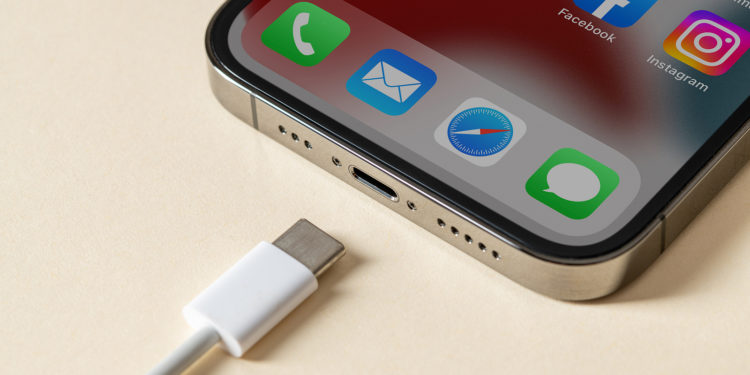The EU has passed a new law that states that wired devices, including the iPhone, must be equipped with a USB-C port to be sold in Europe. Apple has until the end of 2024 to comply with the law, but there are already rumors that the company may restrict the use of uncertified USB-C cables. This has led to a warning from the EU Commission to Apple that could jeopardize the sale of iPhones in Europe.
USB-C has now become one of the most commonly used cable connectors and is set to replace the old Lightning connector on the iPhone. As a result, the EU has passed a law to ensure standardization of the connectors of electronic devices in Europe. In this context, Apple has until the end of 2024 to comply with the law by equipping its devices with a USB-C connector. But the EU's warning to Apple raises doubts as to whether the Pursue comply with the law and ensure the sale of iPhones in Europe. In February of this year, there were rumors that Apple might restrict the use of uncertified USB-C cables that are not certified under the "Made for iPhone" program.
USB-C in focus: Will Apple take the EU warning seriously?
It is believed that a small chip in the USB-C port of the iPhone 15 models will confirm the authenticity of the connected USB-C cable, similar to the Lightning port on current iPhones. This possible limitation of the functionality of uncertified USB-C cables has prompted EU Commissioner Thierry Breton to warn Apple in a letter (via Die Zeit) that this is not allowed and would jeopardize iPhone sales in Europe if the law goes into effect. According to reports, the EU also warned Apple at a meeting in March. The law, which requires the use of USB-C ports on electronic devices in Europe, poses a challenge to Apple's business practices. However, the potential restriction on the use of uncertified USB-C cables could jeopardize iPhone sales in Europe. It remains to be seen whether Apple will take the EU's warning seriously and comply with the law. (Photo by yalcin.sonat / Bigstockphoto)





